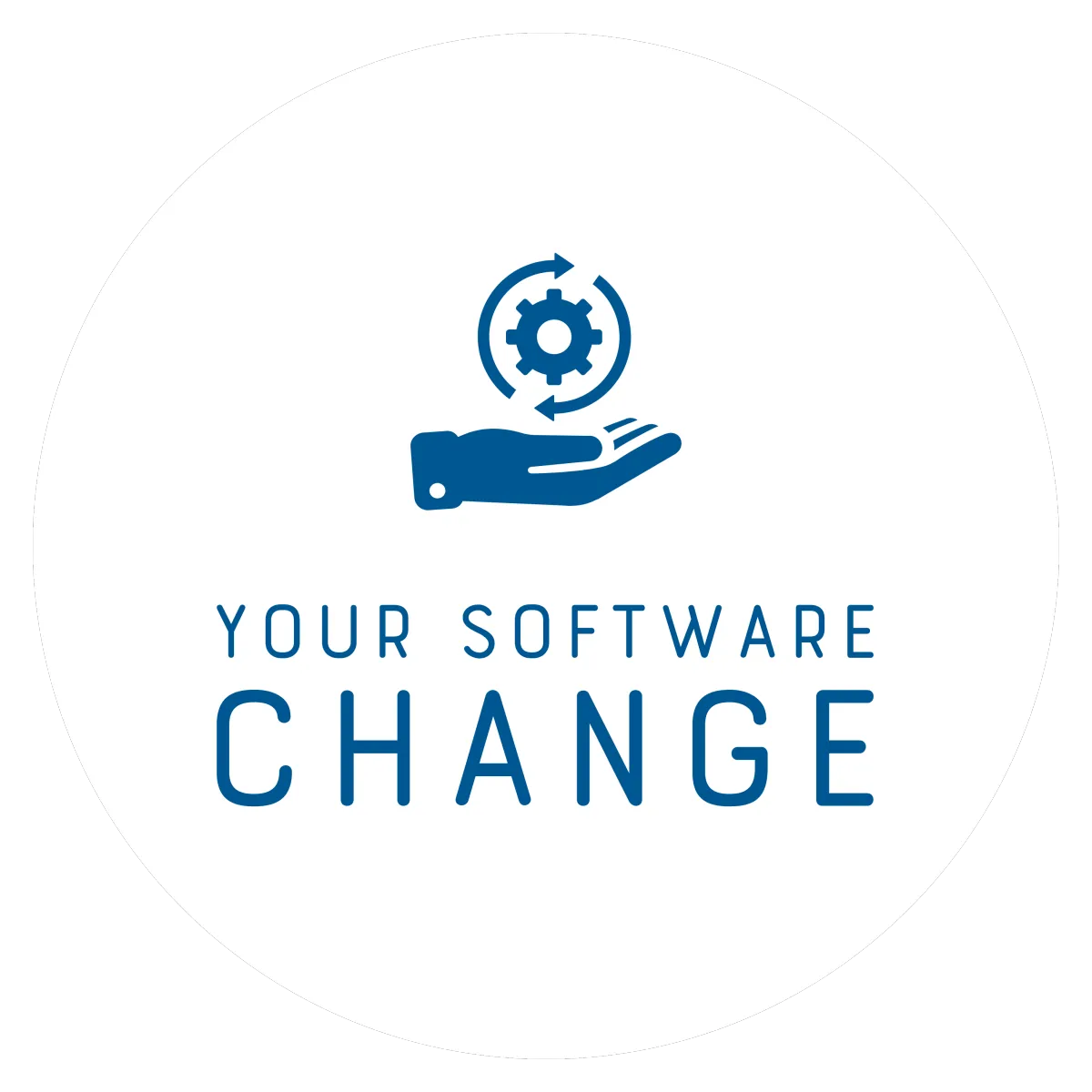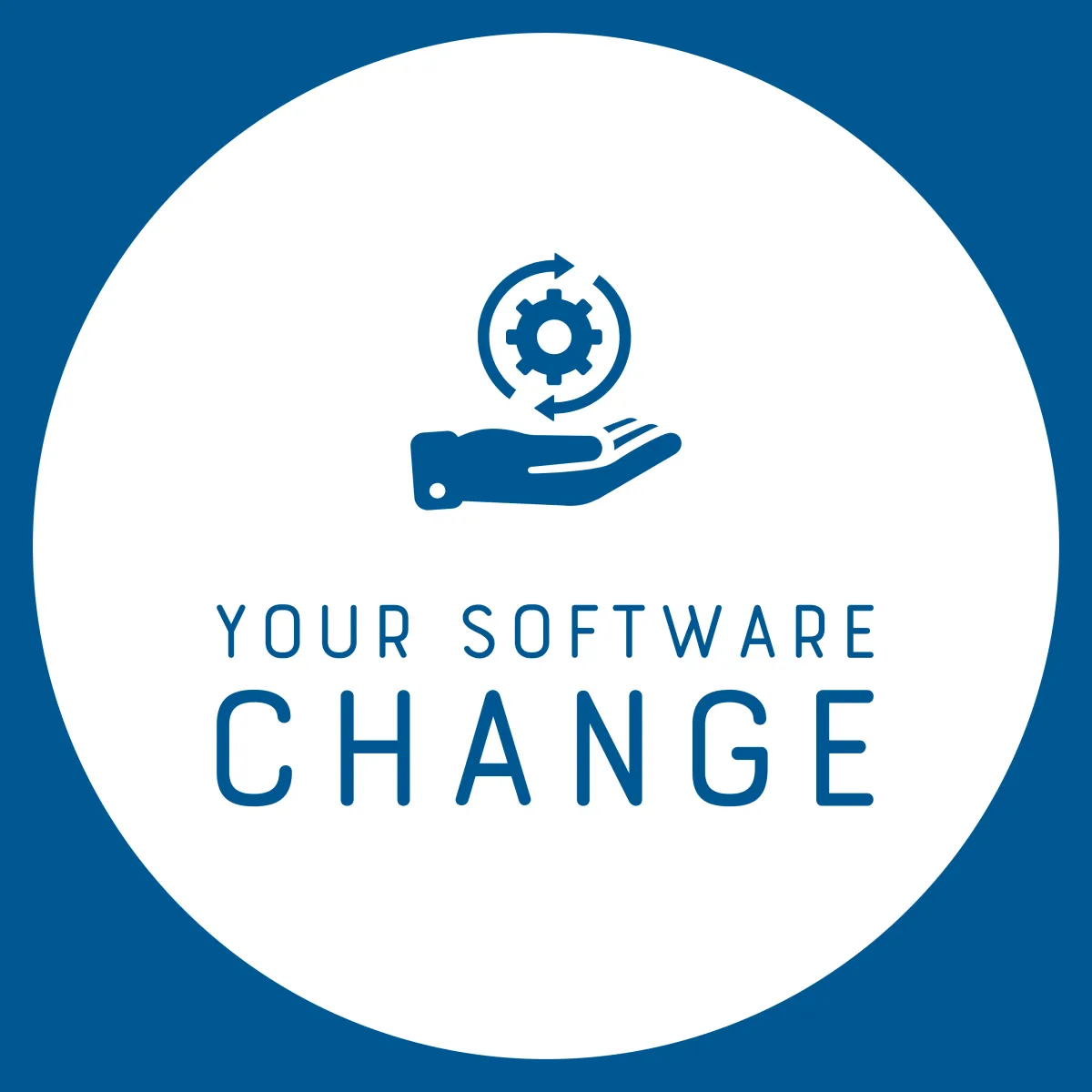Unlock the full potential of your
software investment....
Your Software Change Blog....

Meet Lucy
“Be yourself; everyone else is already taken" (Oscar Wilde)
Hello 👋🏻
Nice to meet you, so thought I'd take this space to give you a little bit of background to me and hopefully give you some insight into why I am so passionate about putting people back into the heart of software transformation.

1. Over 20 years in Software Transformation Projects
I was incredibly fortunate and lucky to have fallen into a career of software implementation in my early twenties when I got a role as a Software Trainer for a software company.
This was the start of a career I love and I have only ever worked in Software Delivery Projects and Programmes since.
I am a proud Generalist in the Software Delivery Space, having worked across multiple industries and in both supplier delivery roles and in internal software implementation roles.
I have had a variety of roles over the years including Business Analyst, Project Manager, Change Manager, Implementation Specialist, Software Development to name a few..
2. Proud Generalist 🍥
"Jack of all trades, master of none, but oftentimes better than a master of one" - (Shakespeare)
Despite Generalists still having poor PR, I believe it is being a Generalist that is my secret weapon, it is my breadth and depth of experience in Software Implementation Projects that enables me to see the bigger picture, connect the dots, and offer solutions.
I won't say if I haven't seen it, it doesn't exist, because the world and technology is constantly moving and changing - and thank goodness, because I get bored easily.
But I have seen variations of the same main themes across projects over the years and it doesn't matter the industry, software, budget, they usually have the same sticking points, same missed detail, the same causes for delays/budget creep, same reasons why it doesn't deliver the benefits promised and leaves stakeholders scratching their heads wondering what went wrong.
As you run through the project, (and as unexpected things come up, as they always do), you need someone who says ok this could impact X, Y, Z in the immediate and A, B, C in the future, here are some suggested options, lets speak to the stakeholders impacted, understand the consequences of each solution and make an informed decision based on all the consequences not just the obvious immediate ones.
If you don't know who to ask, you won't know the impact of your decision and often times that impact is not felt in the short term but months after the project team have gone, and you're left to pick up the pieces.
And that's why I love my broad experience because I've been in the developers camp, I've been in the supplier camp, I've been in the client camp, I've done requirement gathering, I've written functional and technical specifications, I've created User Stories, I've been at the coal face with the users who have to use the solution provided, I have that insight and awareness that means I instantly see the bigger picture and connect the dots.
3. Why do I feel so passionate about Change Management
In 2019 I got a role as a Change, Learning and Adoption consultant and I discovered that Change Management is a "thing". It was like a "hallelujah - coming home" moment.
Suddenly realising that everything I had been doing instinctively was a "thing", there was science behind what I have been promoting, there were defined processes and frameworks that aligned with what I had been doing and creating in my projects for the past 15 years - Hallelujah.
So much so I went on to get my APMG Change Manager Practitioner Qualification with Melanie Franklin who specialises in Change Management in Agile Environments.
Despite being a Prince2 Practioner I had been pushing back on most Project Manager Roles being offered for years because although I have a great track record of delivering on time and in budget, I have always stated I prefer the human side of software implementation, that's where I can make a difference and ensure that the delivered solution actually works and makes a difference.
Software Implementation has for far too long been the purview of IT and been managed as a IT Project, yes there are many moving technical parts that are all interconnected and need to move cohesively and in strict timelines to ensure one delay doesn't cause a domino affect across all the other moving parts.
But if you only focus on getting the IT parts of the project done and delivered on time and in budget you often miss the most important part - does it work for the people the solution is supposed to serve.
If you are one of the few, who does start with best intentions and do a full requirement gathering exercise with all affected parties - how often are the findings referred back to as the project moves forward.
How often before you make a decision, when deadlines are looming and the pressure is on, do you go back and review any decision against the original goals and strategic objectives of the project rather than just timelines, budget and the team that are shouting loudest right now for a decision?
Unfortunately 95% of the times it is not enough! And that is why I get so passionate and can wax lyrical on this til the cows come home.
4. North Star
Every project needs a North Star.
I don't believe you should start any transformation project without a North Star, once you know what the strategic objective is - usually some variation or combination of Save Money, Improve (Customer / User / Employee etc) Experience, Save Time.
You can then start talking to all affected parties and work out what that means to them. From here you create a handful of key deliverables which if achieved means you have delivered a successful project that meets your North Star.
The North Star and the identified key deliverables should then be front and centre for every moving part of the project, every meeting, every communication, every team fully understanding and knowing that success is measured on these key deliverables.
They should be at the forefront when discussing solutions and their potential impact/consequences.
All decisions made in relation to the project should come back to does that take us closer to delivering our North Star or further away.
5. Continuous Improvement (Organisational)
I also believe all organisations which wish to thrive in the modern world where change is happening at breakneck speed need to adopt a culture of continuous improvement.
A project isn't done once it is implemented, it isn't even done once it is handed over to Business as Usual and the project team have moved on, for me this is really only the beginning and there should always be a solid sustainable strategy for continuous improvement and embedding of processes.
For an organisation to get the real benefits of any software transformation these days, it is not enough to only be looking at solutions that work for their current needs, they need to be finding solutions and processes that will adapt and change with their future needs.
6. Continous Improvement (Personal and Professional)
It would be rather incongruous if I stated the above but didn't believe or do any of my own continuous development, luckily it is something I have always believed in.
Not sure if it is because I left school and home when I was 16 and have always felt I have to prove myself, but I love learning, I love reading, I invest heavily in my own self and professional development and I love how my brain constantly connects what I am learning back to the real world and real life circumstances - often providing new ideas and solutions.
It is why I decided to do a Level 4 Data Analytics Apprenticeship (might also have been I missed coding and fancied learning Python too but shhh 🤫) because although I have zero intention of being a Data Analyst - our world is driven by data and if I want to be true rounded generalist in the Software Transformation Space I need to understand the world of Data and how to tell stories with it.
7. Thank you
If you have made it this far, thank you.
I wasn't really sure where this post would lead me but decided to follow the flow, I am sure over the coming weeks there will be more personal insights to who I am and what makes me tick as well as digging deeper into my thoughts above along with providing useful resources and ideas too.
In the meantime if you would like an informal chat about how I can help with your next software transformation project or who I might suggest from my network to help please do get in touch [email protected]
Copyright: Optimise Your Software Ltd


